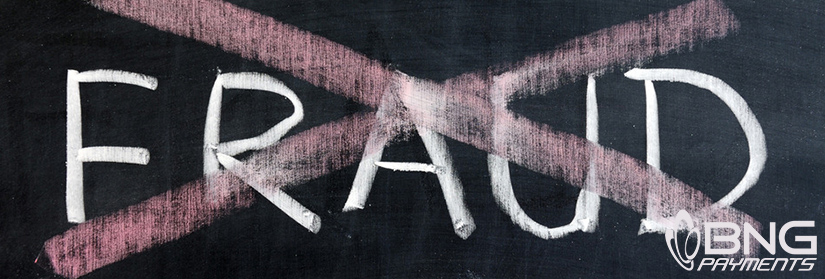
Happy Holidays!
With Black Friday over, and Christmas just around the corner, this is a busy time of year for merchants, but it's also a busy time for fraud.
During these shopping seasons, merchants are processing large amounts of credit card information, and it can be hectic to review all the orders. Which makes it a prime time for fraudsters
Fraud is the most detrimental to small merchants. While EMV has been making waves for safer face-to-face transactions; merchants are still going to experience loss from criminals that EMV will not really prevent.
How do you stay safe this Holiday Season?
All of these are most likely to happen to you in your business lifetime. We’ll go through the best ways to prevent these types of fraud.
If you accept a stolen card, there will be no way to recover the funds. Always check to make sure and see if card is declined or listed as a number. If you don’t check for this, or are running transactions offline, you’ll fall victim to this type of fraud.
Always check the orders manually, especially if you’re a moto or internet merchant. Fraud has been exploding over the last few years, as criminals become less inclined to take the risk of face-to-face fraud.
Merchants who largely do not take face-to-face transactions will come across more attempts from fraudsters.
This can happen quite easily, a large order comes in from a contradicting source. Here are some guidelines for preventing Internet, telephone or mail order fraud.
Request that cardholders provide the following information during the order taking process:
Double checking all this information can save you money from fraud loss. You will not have to do this for every order, but for larger purchases, always double check the above.
The key points of data you want to review are:
If the reside in a country differs from the shipping address, do not process the order! It may seem like a bother, but this is worth double checking. Try contacting the number who made the order to see what’s up.
Not every case will be fraud, but it’s a common red flag to watch for; when it comes to fraud, the rate of mismatched addresses is high indicator it’s not a legitimate order.
Knowing what to say when you’re confirming a legitimate order here’s the questions to have them confirm.
If you’re still suspicious, due to a gut feeling, or just the amount or quantity of the order, you’ll have to make the call to reject the order or not.
From our experience, it’s always better to not process these types of transactions. You may try and gamble, thinking it’ll be okay. The sad reality is these types of orders with contradicting information will 100% of the time be fraudulent.
We recommend you do not process it, but if you want to, here’s the best way we can say to process it.
Wire transfer.
This will work for incredibly large (several thousand of dollars), overnight transactions, with a suspicious information.
Insist that the buyer has to agree to a wire transfer, chances are, if they need the product and are a legitimate buyer, they’ll agree to it.
A fraudster will not accept these conditions, and you should in return not accept their business.
Don't get robbed this season.
Be smart when processing orders, and don't let the busy Holiday Season ruin your judgement.
Again, don't accept suspicious orders! It's not worth the risk, no matter how much the transaction is for. You will be liable for it. You may think it's worth the gamble, but if it turns out to be fraud, you could be out thousands of dollars.
Take a look at our services, and see what others have said.
If you’d like to learn more about what our company can do for your business, or would like a free consultation, contact us here.
